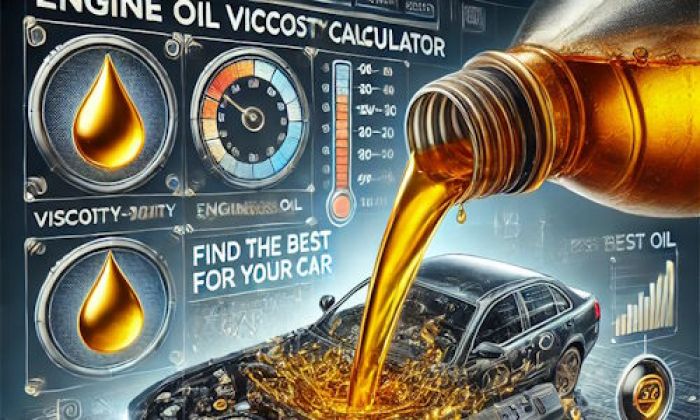The Nissan Sentra is a traditionally popular compact sedan car that has always attracted attention of American car buyers. Although it dropped in popularity recently, the vehicle is still one of the major competitors in the class that is losing models one by one. The new Sentra is offered at a price a little over $21,000 and this is the key of its market problems - we believe it's too expensive for a compact sedan.
Today, we'll tell you more about the 2.0L engine that is the only powerplant option for the new Nissan Sentra in the US. We'll cover its advantages and weak links for you to know. Also, we'll look if Nissan offers a reliable engine for its compact sedan and if you can expect to drive your Sentra longer than an average car in the class.
.jpg)
Key features and my opinion about the engine
- Production years:2010-now
- Average lifespan of MR20DD:130,000-160,000 miles
- Fuel supply type:direct injection
- Power range:140-150 hp
- Fuel efficiency:good
- Engine block material:aluminum
- Engine reliability score:low
- The most common problems:soft engine head metal, carbon buildup on intake valves, timing chain stretching, throttle contamination, oil consumption.
What should you know about the Nissan Sentra engine?
The 2-liter engine is codenamed MR20DD and it comes without any alternatives in the US market. The engine is the direct ancestor of the 2-liter engine that was previously used in several generations of the Sentra - the MR20DE model. Also, this is a sibling of a Renault M5R engine pretty popular in Europe.
In the American market we can think of only one model that uses this engine alongside with the Sentra - it's the Nissan Rogue Sport. The MR20DD engine is not new, it was first used in some markets in 2010 and is still produced for different models all around the world. We wouldn't say the engine is completely simple, but it's obviously not the most high-tech powerplant in the world.
Here's what you may want to know about it:
- this is a non-turbo 2-liter gasoline engine that offers 149 horsepower and 146 lb-ft of torque - nothing special here;
- the engine is mated to the only available transmission option - the hated CVT which is one of the reasons for concerns about the whole powerplant;
- this is a direct injection engine which means it's going to spoil your mood from time to time with injection problems and carbon buildup;
- the block and the head are made of aluminum which steals some lifespan but makes the powerplant pretty lightweight;
- this is one of the first Nissan gas engines with EGR - we have no idea why they made it and this is one of the depressing factors;
- the timing system is driven by chain, the chain is OK but it will still need replacement at 100,000 miles or sooner;
- phasers are here for intake and exhaust camshafts (Twin VVT) which is made for economy and smooth work;
- the engine can only 'digest' premium fuel - experimenting with cheaper gasoline may lead to bad damage and sharp life expectancy drop.
Now you know everything about the engineering of this powerplant. Also you should know that this is the only available engine for the Sentra and it comes with the only transmission options, so different trims of the new Sentra will have various comfort equipment and interior styling, but technically, all models are completely the same.
In the city traffic, you are expected to get about 29 MPG which is perfect for such a vehicle. Also, the highway mileage goes up to 39 MPG which is more like a hybrid mileage. But in real life, things are a little worse. You may achieve the claimed fuel consumption in that case only if you drive extremely carefully and almost don't touch the acceleration pedal.
How many miles will this powerplant last?
The 2.0L engine in the new Nissan Sentra will reportedly last about 150,000 miles. During this time, you will have to pay for several expensive procedures: CVT replacement or repair, several times for valve cleaning, and also chain replacement. But if you aren't lucky enough, you may also need to spend hundreds on VVT system failures and also some other common issues.
We wouldn't sat this is the cheapest 2-liter non-turbo engine to own. And we would also say that the average mileage that we've told you earlier about seems a little too optimistic given the engine is pretty problematic. Somewhere at 100,000 miles you may decide that repairing and restoring this engine just isn't worth it.
But we still know some owners who are glad with their Sentras. This engine may be good for 200K miles if it's maintained perfectly and also repaired before it fails. For example, you can change the chain every 80,000 miles and clean the valves every 40K miles - right before some problems will happen.
What are the common problems with the Sentra engine?
Although this engine is seen as a not bad option for the new Sentra, it can't be considered problem-free. We've seen hundreds of reports and tried to categorize those reports to understand the most common issues. Also, we've spoken to Nissan dealer mechanics and to some owners of the new Sentra to get more understanding of what may go wrong with this engine. We've investigated sources from overseas because this engine is mostly used in other countries now.
Here's what kind of common problems we managed to find:
1. Very tender engine head
Mechanics told us that the head in these engines is so tender that if you tighten the bolts without understanding the needed torque or sequence, the head can easily crack. We've also found some reports about this issue in forums in Europe. Seems like these heads will also go bad once the engine is overheated, so keep an eye on engine temperature and avoid overheating at all cost.
2. Carbon buildup
As all direct-injection engines, this one will obviously get on your nerves with carbon buildup on intake valves. We should say that the injection system is more or less OK but the valves will need cleaning. It means you will have to spend more money on maintenance than you probably expect to spend.
3. Timing chain issues
Owners say that usually after 80,000 miles the chain may get loose and produce rattling sounds. This means the chain should be replaced as soon as possible. If your chain is OK, we still recommend replacing it at 80,000 miles to avoid problems in the future. We also know that just a few Nissan chains can last more than 100,000 miles. Better replace it before it fails, otherwise, the engine will be destroyed when it jumps.
4. Crazy oil consumption
When the engine has more than 120-140 thousand miles on it, the powerplant starts drinking up oil like crazy. This usually leads to low oil levels because the oil pressure light will go on the dash too late when the engine will start wearing intensively because of poor lubrication. Oil consumption is the problem of bad piston rings and valve seals. Replacing them will help but won't prolong the engine life much.
5. Throttle body issues
This engine has surprisingly many reports about its throttle body. Clogged throttle body will obviously affect the efficiency of the engine, affect its gas mileage and power. You may notice that the engine wors harshly when idling and the RPM needle goes up and down. This is the first symptom of a dirty throttle body. Cleaning it is not a very hard task, so we recommend cleaning it regularly - at least once every two years.
6. CVT issues
Although the CVT is not exactly the art of the engine, it's the part of the powerplant and affects the vehicle's longevity. The Nissan Sentra CVT will die at about 100,000 miles or even a little earlier. Repairing the CVT is a tricky task and in most cases, this doesn't make sense, so you will need to replace it. You can buy a remanufactured transmission but be careful and check what you are buying.
What should you do and know to drive your Nissan Sentra longer?
While the regular maintenance is super important and is the key to optimal longevity, your Nissan Sentra 2.0L MR20DD engine will need some more attention than just changing oil on time.
Follow these tips:
- avoid overheating at all costs;
- replace the timing chain with all accessories every 80,000 miles;
- replace the piston rings and valve seals at 120-140 thousand miles;
- replace the CVT at 100,000 miles or when it starts glitching;
- have the intake valves and throttle body cleaned once every two years;
- avoid aggressive driving;
- avoid towing with your Nissan Sentra;
- check oil levels on a high-mileage engine quite often.
Now you know what to do to get your Nissan Sentra 2-liter gas engine to 200K miles or even further. Of course, you should know that Nissan engines are not the most durable but are pretty practical and good to drive.
For us, the new Sentra is a bit overpriced and it has a lot of common issues with its powerplant. So we would choose something else. But still, the vehicle seems to be a good choice for average city driving.
About the authors
The CarAraC research team is composed of seasoned auto mechanics and automotive industry professionals, including individuals with advanced degrees and certifications in their field. Our team members boast prestigious credentials, reflecting their extensive knowledge and skills. These qualifications include: IMI: Institute of the Motor Industry, ASE-Certified Master Automobile Technicians; Coventry University, Graduate of MA in Automotive Journalism; Politecnico di Torino, Italy, MS Automotive Engineering; Ss. Cyril and Methodius University in Skopje, Mechanical University in Skopje; TOC Automotive College; DHA Suffa University, Department of Mechanical Engineering






Add comment